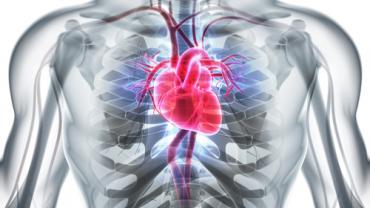
According to a new study just published nine days ago, researchers demonstrated that garlic extract improves biomarkers associated with cardiovascular risk specifically related to endothelial function and arterial stiffness in obese patients. Garlic has a broad range of health benefits, from antimicrobial properties to supporting cardiovascular health.
In this randomized double blinded placebo control trial, 92 patients were randomly assigned to receive 400 mg of a garlic extract or placebo daily for a 3 month period. Laboratory assessment associated with endothelial function and arterial stiffness included hs-CRP, total cholesterol, LDL cholesterol, HDL cholesterol, triglycerides, plasminogen activator inhibitor 1 (PAI-1), and total antioxidant status (TAS). These were measured baseline and at the end of the study.
As a result, the arterial stiffness index, hsCRP, LDL cholesterol, and TAS (p < 0.01) were all reduced in the group that supplemented with garlic extract daily but not in the placebo group. This study demonstrates that supplementation with a garlic extract can improve endothelial biomarkers associated with cardiovascular risk as well as mitigate chronic inflammation in obese patients.
Additional Support
Reseveratrol, curcumin, and vitamin D are other nutrients that play essential roles in endothelial function.
Previous research published in 2016 in the Journal of the American College of Cardiology demonstrated that vitamin D supplementation significantly improved vascular function and reduced oxidative stress in patients with a vitamin D deficiency, which is a large percent of the population.
Resveratrol is a polyphenol with powerful antioxidant and anti-inflammatory properties. It has been widely publicized for its cardiovascular health benefits; however, there are few human studies in patients with atherosclerogenic diseases. Resveratrol activates sirtuins, which can increase insulin sensitivity and protect against oxidative damage. In a study published last year in the International Heart Journal, researchers demonstrated resveratrol’s benefits in improving arterial stiffness and reduced oxidative damage at a dosage of 100 mg per day over a 12 week period.
Another study published in Fall 2017, demonstrated that curcuminoid supplementation can significantly reduce lipoprotein(a) and increase HDL-C, which may reduce the risk of a cardiovascular event in diabetic patients with dyslipidemia. These patients took 1 g of a standardized curcumin supplement for 12 weeks.
It is important to look deeper at the cardiovascular system and perform a thorough assessment for these patients. Health care providers have a wide variety of tools today to assess cardiovascular health and support the body’s physiology. This may include looking at lipid fractionation profiles, chronic inflammatory markers (ferritin, hs-CRP, fibrinogen), nutrient markers (magnesium, potassium, selenium, copper, folate, B12, B6, zinc, and calcium), fat soluble vitamins (CoQ10 and vitamins A, D, E and K), oxidative stress factors (homocysteine, insulin, and lipid peroxidases), heavy metals, and fatty acid profiles. Many of these nutrients play a synergistic role with one another and it is important to maintain adequate levels for optimal function.
By Michael Jurgelewicz, DC, DACBN, DCBCN, CNS